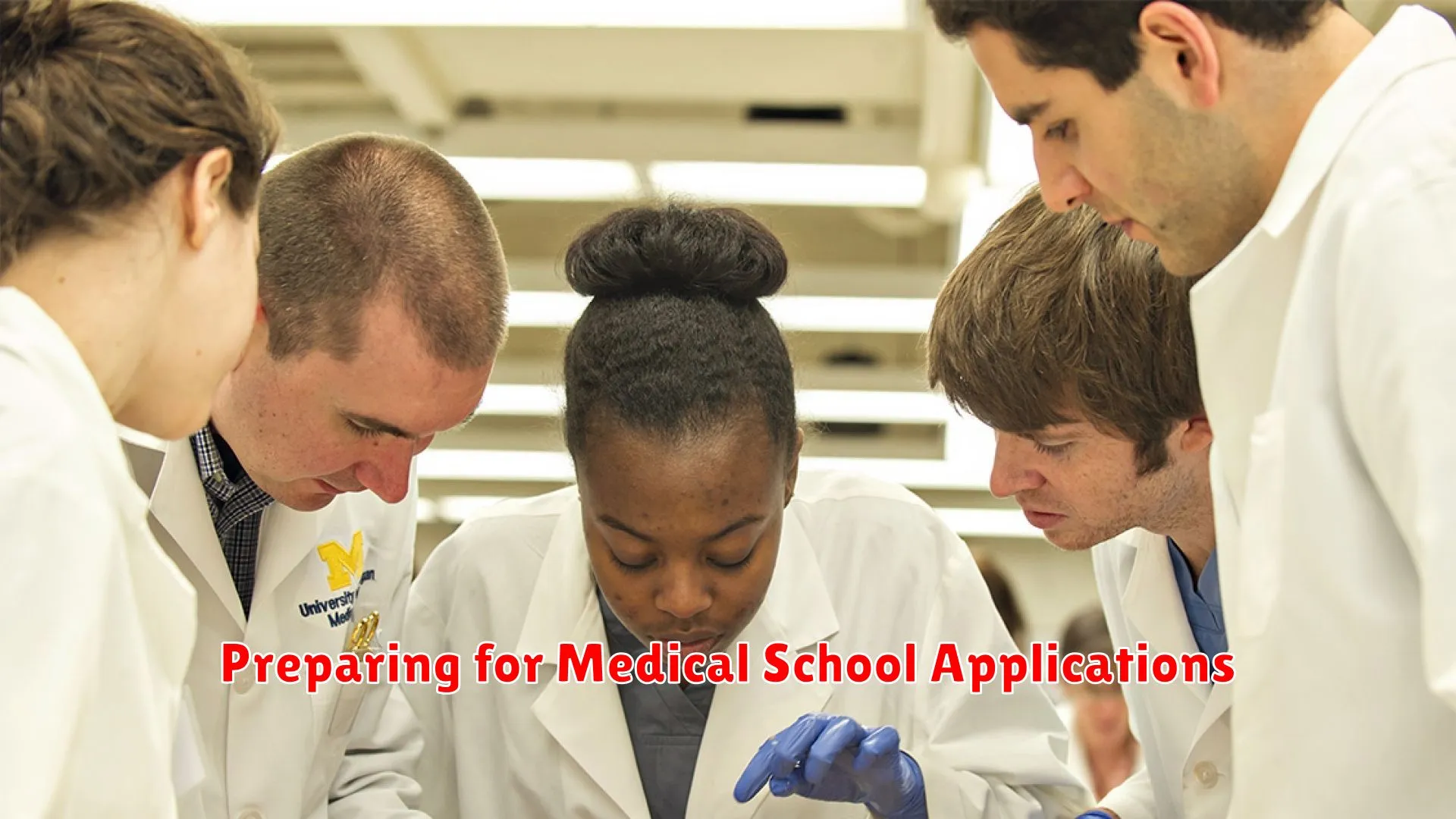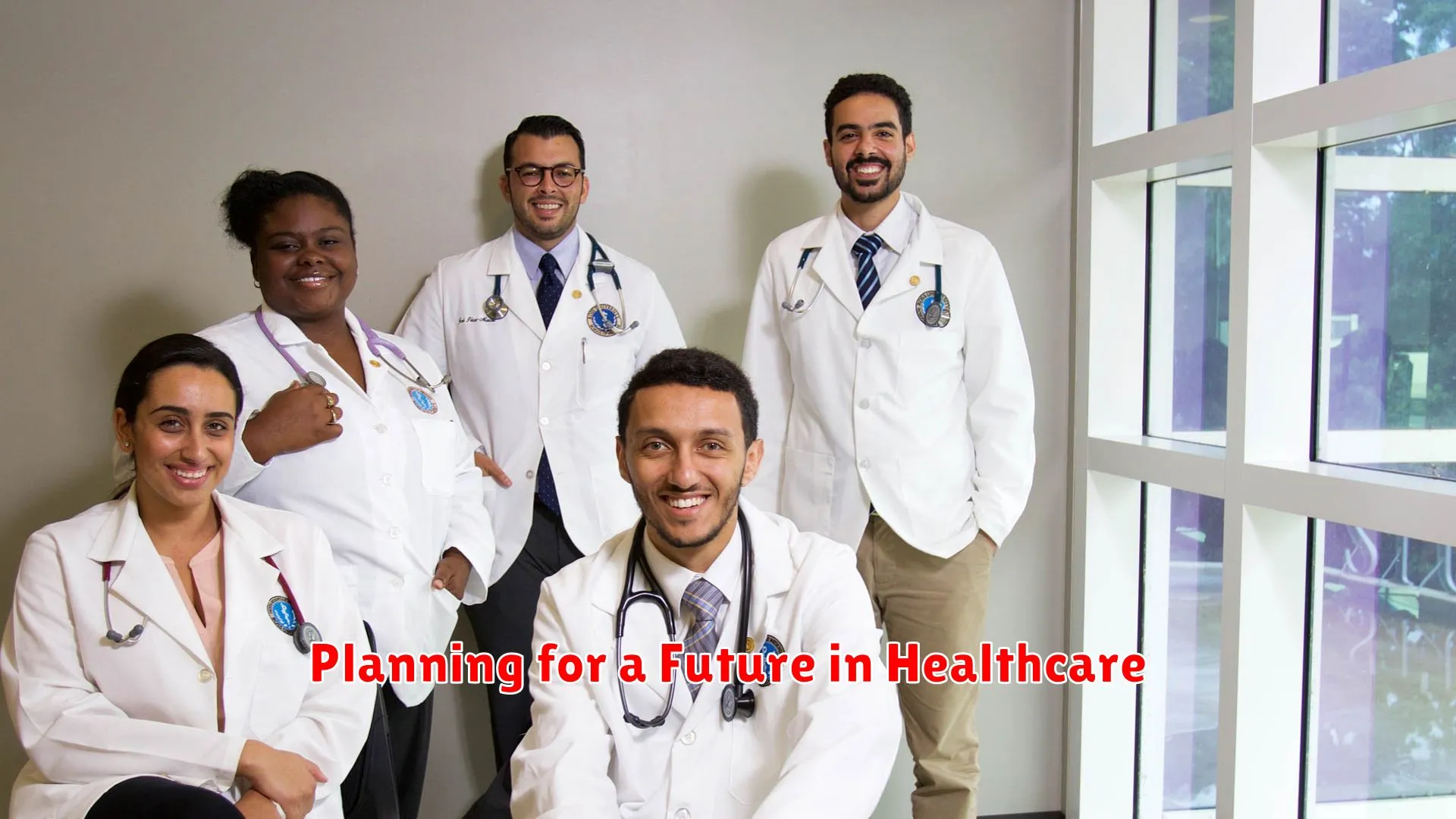Explore the journey to medical school in the US with scholarships for aspiring doctors. Discover opportunities to achieve your dream of becoming a physician without the burden of financial constraints.
Finding Scholarships for Medical Studies

Aspiring doctors pursuing their education in the United States often face the significant financial burden associated with medical studies. Fortunately, there are various scholarship opportunities available to help alleviate the costs and support these future healthcare professionals in achieving their goals.
1. Explore Medical School-specific Scholarships
Many medical schools in the US offer scholarships specifically designed for their students. These scholarships can cover tuition fees, living expenses, or other study-related costs. Prospective medical students should research the scholarship options available at the schools they are interested in attending.
2. Government and Private Scholarships
Government agencies, non-profit organizations, and private foundations also provide scholarships for medical students. Organizations like the National Institutes of Health (NIH) and the American Medical Association (AMA) offer scholarships to support individuals pursuing careers in medicine.
3. Diversity and Minority Scholarships
Several scholarship programs aim to increase diversity and representation in the medical field. These scholarships are often targeted towards underrepresented minority groups in medicine, including African American, Hispanic, and Native American students. By applying to these scholarships, aspiring doctors can access additional funding opportunities.
4. Research and Apply Early
It is crucial for aspiring doctors to start researching and applying for scholarships early in their academic journey. Deadlines for scholarship applications can vary, so staying organized and proactive can increase the chances of securing financial support for medical studies.
In conclusion, the path to medical school in the US can be financially challenging, but with diligence and strategic scholarship search, aspiring doctors can find valuable financial aid to support their educational pursuits.
Preparing for Medical School Applications

As an aspiring doctor in the US, the journey to medical school starts long before you submit your application. To increase your chances of securing scholarships, it’s essential to lay a solid foundation early on.
1. Academic Excellence
One of the key aspects of preparing for medical school is maintaining a strong academic record. Focus on excelling in your science courses, as these are crucial for medical school admissions. Consider taking advanced courses and pursuing research opportunities to demonstrate your commitment to the field.
2. Extracurricular Involvement
Medical schools value well-rounded individuals, so involvement in extracurricular activities is important. Engage in volunteer work, leadership positions, and healthcare-related experiences to showcase your passion for serving others and making a difference in the community.
3. Research Scholarship Opportunities
Start researching available scholarships for aspiring doctors early on. Look for both national and local scholarships that cater to students pursuing a career in medicine. Keep track of application deadlines and requirements to ensure you submit a competitive application.
4. Build Strong Relationships
Develop meaningful relationships with professors, mentors, and healthcare professionals who can provide recommendations for your medical school applications. Networking within the medical community can also open doors to scholarship opportunities and valuable connections.
By taking proactive steps to prepare for medical school applications, you can enhance your candidacy and increase your chances of securing scholarships to support your journey to becoming a doctor in the US.
Balancing Academics and Clinical Experience

Aspiring doctors in the US face the challenge of balancing academics and clinical experience on the road to medical school. Achieving a successful and fulfilling career in medicine requires a harmonious blend of rigorous academic study and hands-on clinical training. Here are some key strategies to strike a balance between these two essential components:
- Prioritize Time Management: With the demanding coursework of medical school, it’s crucial to prioritize your time effectively. Allocate dedicated blocks of time for studying, attending classes, and gaining clinical experience to ensure you stay on top of your academic and practical responsibilities.
- Engage in Clinical Opportunities: Actively seek out clinical opportunities such as shadowing physicians, volunteering at hospitals, or participating in research projects. These experiences not only enhance your understanding of medical practice but also provide valuable insights that complement your academic learning.
- Utilize Study Groups: Collaborating with peers in study groups can be beneficial in managing academic workload while also sharing insights and experiences from clinical placements. Working together can help reinforce learning and provide mutual support in navigating the challenges of medical education.
- Maintain a Healthy Balance: Balancing academics and clinical experience also involves taking care of your well-being. Make time for self-care activities, exercise, and relaxation to prevent burnout and maintain a healthy lifestyle throughout your medical journey.
By striking a balance between rigorous academics and valuable clinical exposure, aspiring doctors can develop a well-rounded skill set that prepares them for success in medical school and beyond. Finding synergy between these aspects of medical training is key to becoming a competent and compassionate healthcare professional.

Aspiring doctors in the United States face significant financial challenges when pursuing their medical education. However, there are various scholarships and financial aid opportunities available to help alleviate the burden of high tuition costs and living expenses. Navigating through the options can be overwhelming, but with careful research and planning, aspiring medical students can find the support they need to fulfill their dreams of becoming doctors.
Scholarship Programs
Many organizations and institutions offer scholarship programs specifically tailored for medical students. These scholarships can cover tuition fees, provide stipends for living expenses, or offer funding for research projects. Prospective medical students should actively seek out these opportunities by researching on university websites, scholarship databases, and professional organizations.
Grants and Financial Aid
Aside from scholarships, medical students can also explore grants and financial aid options. Federal programs like the Free Application for Federal Student Aid (FAFSA) can help determine eligibility for grants and loans. Additionally, medical schools themselves may offer need-based aid packages to support students with financial need.
Loan Repayment Programs
Some medical students opt for loan repayment programs, where they commit to working in underserved communities or in specific fields of medicine in exchange for loan forgiveness. These programs not only help students manage their debt but also contribute to addressing healthcare disparities in the country.
Professional Organizations
Joining professional medical organizations can also be beneficial for accessing financial aid opportunities. These organizations often have partnerships with institutions that offer scholarships or grants to their members. Networking within these organizations can open doors to financial support for medical students.
Overall, the road to medical school may be paved with financial challenges, but with dedication, resourcefulness, and the support of various financial aid programs, aspiring doctors can overcome these obstacles and pursue their passion for medicine.
Planning for a Future in Healthcare

Aspiring doctors in the US face a significant financial burden when considering medical school. However, scholarships can be a crucial resource in helping individuals achieve their dream of becoming a healthcare professional. Planning for a future in healthcare involves strategically seeking out scholarship opportunities to alleviate the high costs associated with medical education.
Researching Scholarships: To pave the way to medical school, prospective students should dedicate time to research and identify various scholarship programs. Many organizations, institutions, and foundations offer scholarships specifically designed for students pursuing a career in medicine. Utilize online resources and scholarship databases to find options that align with your academic achievements, background, and career goals.
Meeting Eligibility Criteria: Each scholarship program has specific requirements, such as academic performance, community involvement, and financial need. To enhance your chances of receiving financial support, ensure that you meet all eligibility criteria and submit a compelling application that highlights your passion for medicine and dedication to serving others.
Securing Recommendations: Letters of recommendation play a vital role in scholarship applications. Build strong relationships with professors, mentors, or healthcare professionals who can attest to your abilities, character, and potential in the field of medicine. Obtain well-crafted recommendation letters that emphasize your unique qualities and commitment to making a positive impact in healthcare.
Writing Compelling Essays: Scholarship essays provide an opportunity to showcase your personal experiences, aspirations, and reasons for pursuing a career in healthcare. Craft compelling essays that reflect your genuine passion for medicine, your determination to overcome challenges, and your vision for contributing to the healthcare community.
Applying Strategically: As the application process for scholarships can be competitive, it is essential to plan and prioritize your submissions. Create a timeline for gathering required documents, completing applications, and meeting deadlines. By applying strategically to a mix of scholarships, you can increase your chances of securing financial aid to support your medical education.
Conclusion
In conclusion, scholarships play a crucial role in supporting aspiring doctors in the US to pursue their dreams of attending medical school, reducing financial barriers and fostering diversity in the healthcare field.




